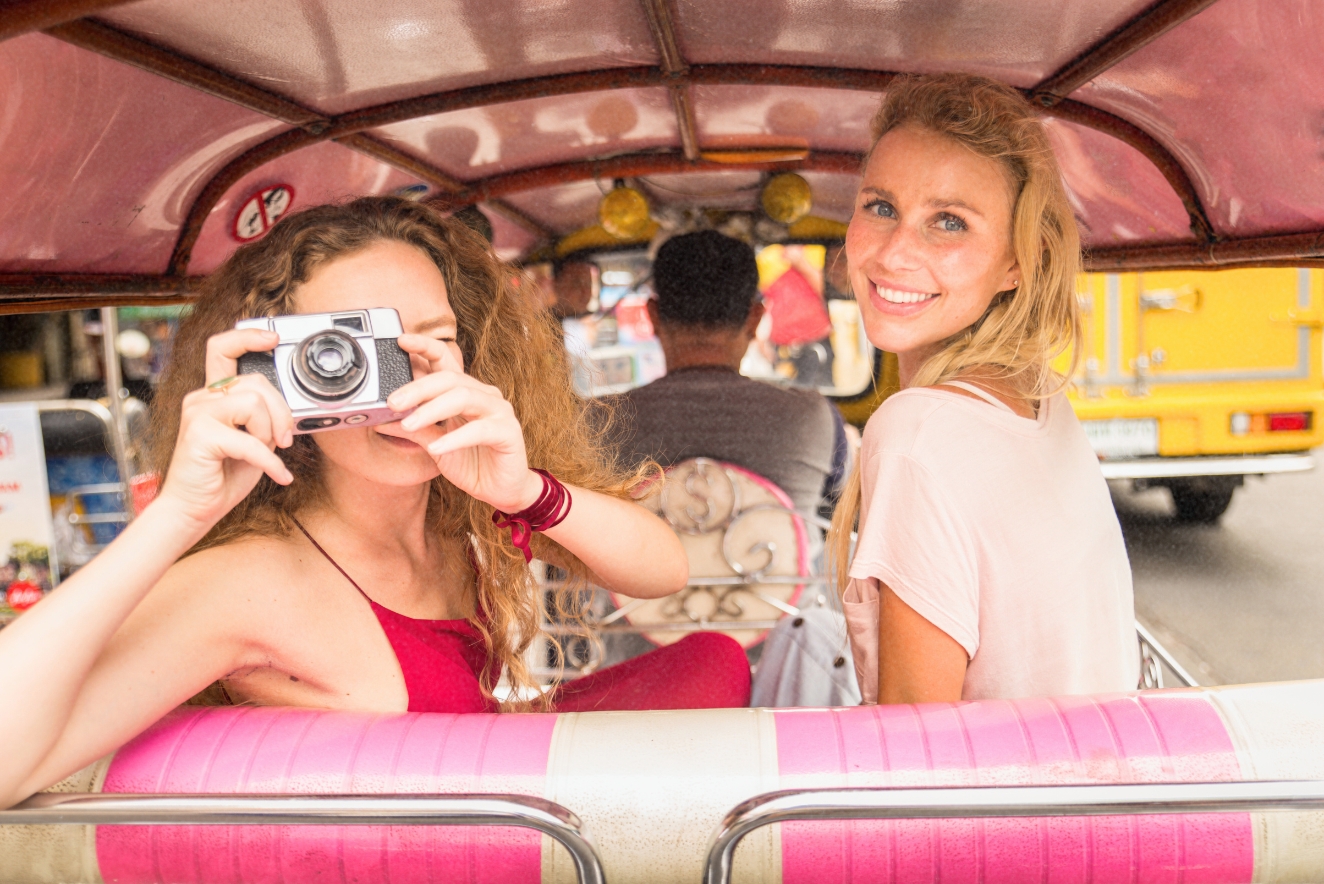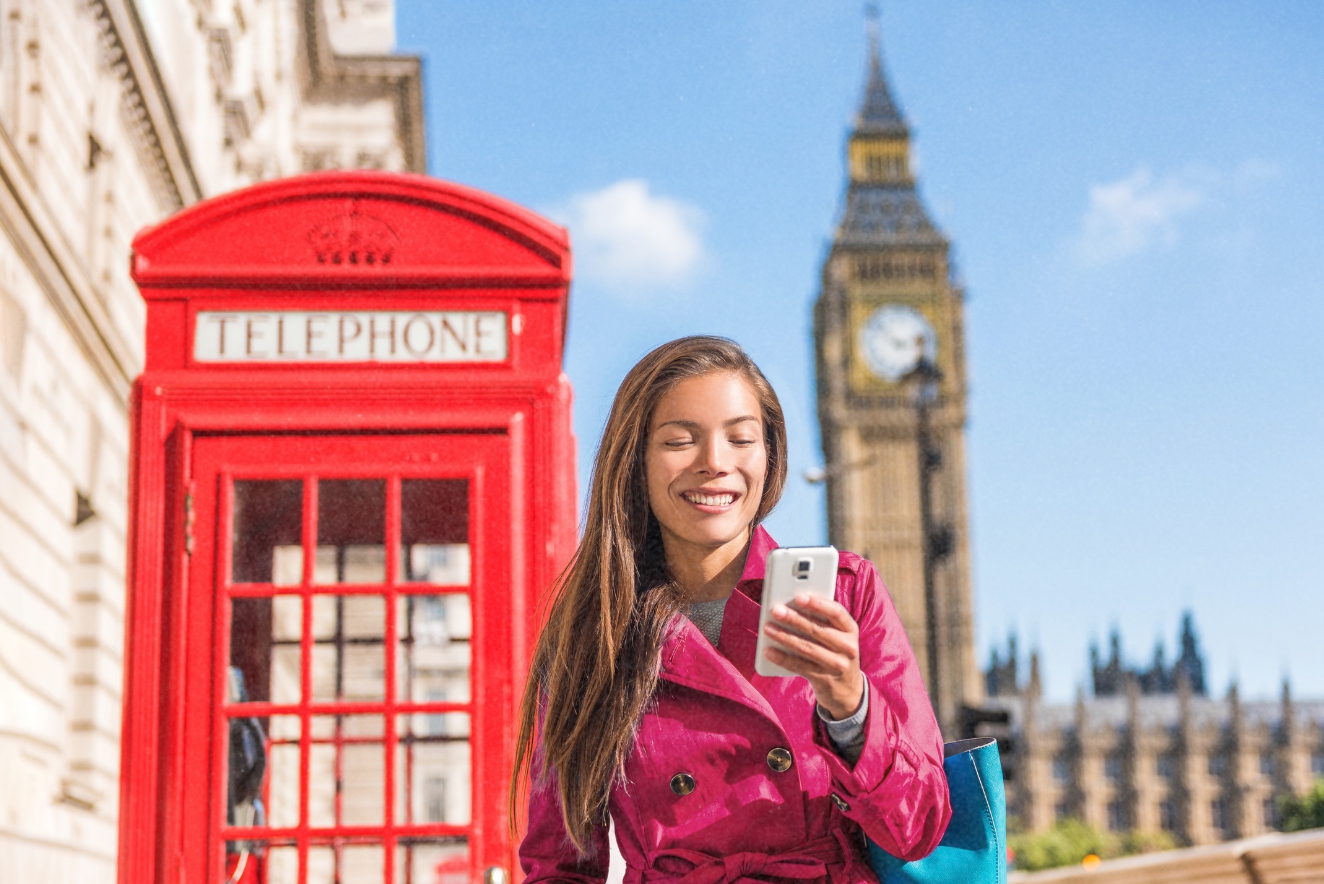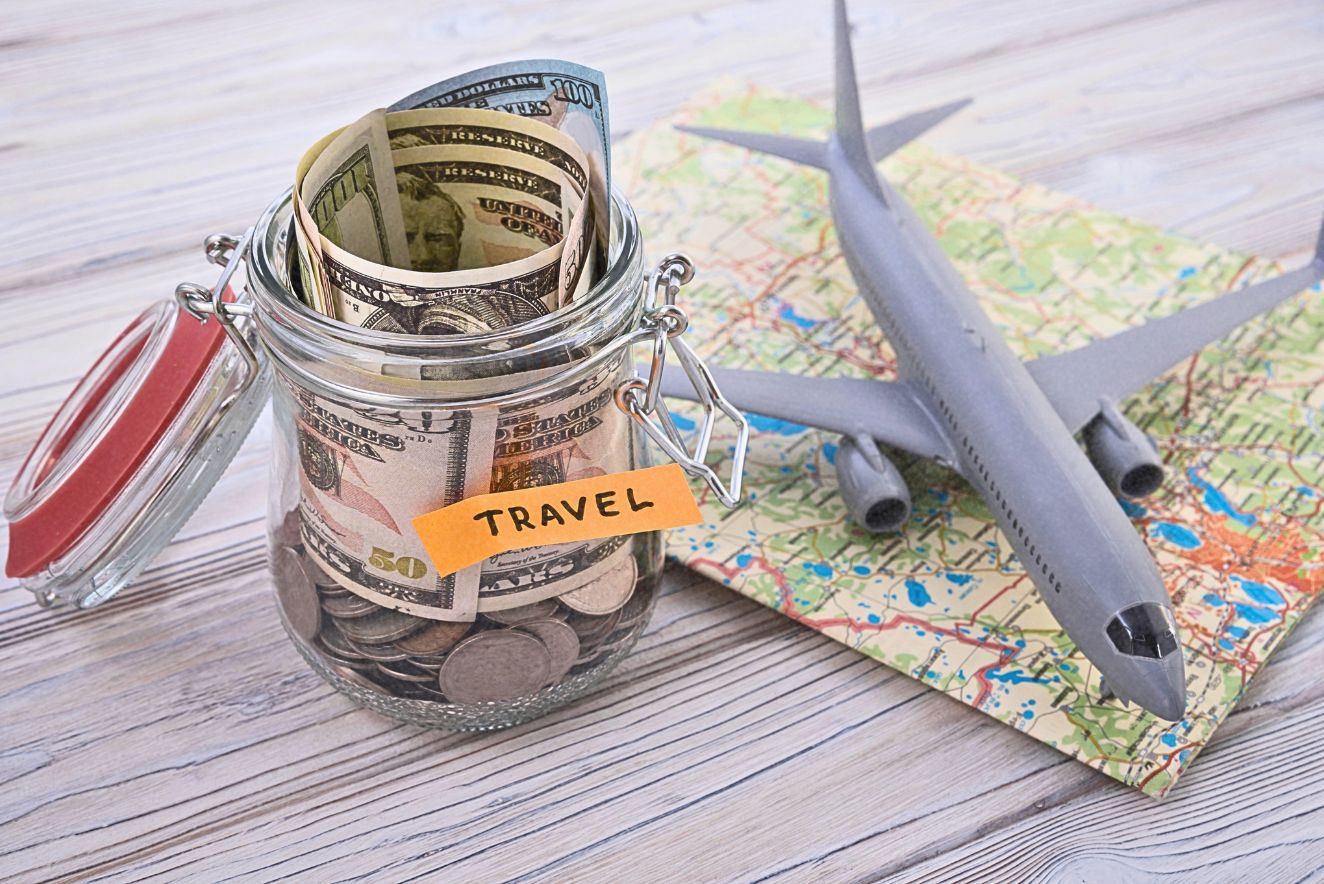Imagine sipping coffee at a Turkish café, hiking through lush Costa Rican rainforests, or watching the sunset over Bali’s pristine beaches – all without emptying your savings account. Sounds too good to be true? Think again!
Welcome to the world of budget travel, where smart planning and insider knowledge can turn your dream vacation into reality.
Did you know that 74% of millennials prioritize experiences over material possessions? That’s right – we’re in the midst of a travel revolution, and it’s time you joined the party!
In this ultimate guide, we’ll unpack everything you need to know about budget travel. From savvy booking hacks to off-the-beaten-path destinations, we’ve got you covered. So grab your passport and let’s embark on this money-saving adventure together!
Understanding Budget Travel: More Than Just Cheap Trips
When you hear “budget travel,” do you picture cramped hostels and instant noodles? It’s time to reshape that image! Budget travel is about maximizing experiences while minimizing costs. It’s the art of smart spending, not just penny-pinching.
Budget travel has evolved from simply finding the cheapest options to seeking out the best value. It’s about making informed choices that allow you to see more of the world without breaking the bank. This might mean splurging on a once-in-a-lifetime experience while saving on accommodation, or choosing to visit a less touristy (and more affordable) destination.
Many people assume budget travel means sacrificing comfort or missing out on key experiences. In reality, it often leads to more authentic and immersive travel experiences. By staying in local guesthouses or using public transportation, you’re likely to have more meaningful interactions with locals and gain deeper insights into the culture.
Beyond saving money, budget travel offers numerous benefits:
- It encourages creativity and problem-solving
- It often leads to more spontaneous and adventurous experiences
- It can make longer-term travel possible
- It promotes sustainable tourism by supporting local economies
Remember, the goal of budget travel isn’t just to spend less – it’s to experience more.
Planning Your Budget-Friendly Adventure
The key to successful budget travel lies in meticulous planning. By doing your homework before you set off, you can stretch your travel dollars further and avoid costly mistakes. Let’s dive into the essentials of planning a budget-friendly adventure.
First, set realistic travel goals and expectations. While it’s tempting to try and cram every attraction into your itinerary, this often leads to overspending and exhaustion. Instead, prioritize what’s most important to you. Is it experiencing local cuisine? Visiting historical sites? Or perhaps immersing yourself in nature? By focusing on your priorities, you can allocate your budget more effectively.
Creating a budget travel.
Creating a travel budget is crucial. Consider all potential expenses:
- Transportation (flights, local travel)
- Accommodation
- Food and drinks
- Activities and entrance fees
- Shopping and souvenirs
- Emergency fund
Research is your best friend when it comes to finding affordable destinations. Look beyond the typical tourist hotspots to discover hidden gems. For example, instead of visiting overcrowded and expensive Venice, consider the equally charming but more affordable Bologna in Italy.
Timing can significantly impact your travel costs. Traveling during shoulder season (the period between peak and off-peak seasons) can offer the best of both worlds: good weather and lower prices. For instance, visiting Europe in May or September can save you money on flights and accommodation while still offering pleasant weather.
Savvy Booking Strategies for Flights and Accommodation
Now that you’ve laid the groundwork for your budget travel adventure, it’s time to dive into one of the most crucial aspects: booking your flights and accommodation. With the right strategies, you can save hundreds, if not thousands, of dollars.
Flights
Let’s start with flights. The day you book can significantly impact prices. Generally, booking on a Tuesday or Wednesday can lead to better deals. Use fare comparison tools like Skyscanner or Google Flights to track prices and set up alerts for your desired routes.
For example, if you’re flexible with your travel dates, use the calendar view on these sites to find the cheapest days to fly. You might find that flying on a Wednesday instead of a Saturday could save you 30% or more on your ticket price.
Accomodations
When it comes to accommodation, think beyond traditional hotels. Hostels have come a long way and many now offer private rooms alongside dormitories. Websites like Hostelworld can help you find highly-rated options.
Guesthouses and homestays, found on platforms like Airbnb, often provide a more authentic local experience at a fraction of the cost of hotels. For instance, staying in a traditional ryokan in Japan or a homestay in Vietnam can offer unique cultural insights while being easy on your wallet.
Rewards programs
Don’t overlook the power of rewards programs and travel credit cards. By strategically using a travel rewards credit card for your everyday purchases, you can accumulate points for free flights or hotel stays. Just be sure to pay off your balance in full each month to avoid interest charges.
House-sitting
For the truly adventurous (and budget-conscious), house-sitting or home exchange programs can provide free accommodation. Websites like TrustedHousesitters connect travelers with homeowners who need someone to look after their house and pets while they’re away. It’s a win-win: you get free accommodation, and they get peace of mind knowing their home and pets are cared for.
 Transportation Hacks for Budget Travelers
Transportation Hacks for Budget Travelers
Getting around in a new place doesn’t have to drain your travel fund. With a bit of creativity and flexibility, you can turn your transportation into part of the adventure while keeping costs low.
Public transportation
This is often the unsung hero of budget travel. Not only is it typically the most affordable option, but it also offers a glimpse into local life. In many European cities, for example, a weekly transit pass can save you money and give you unlimited access to buses, trams, and metros. In Tokyo, the extensive and efficient subway system can whisk you across the city for a fraction of the cost of a taxi.
Budget airlines
These airlines have revolutionized travel, making it possible to hop between countries for the price of a nice dinner. However, be aware of hidden fees for baggage or seat selection.
Buses
Overnight buses, while not the most glamorous option, can save you both time and money by doubling as transportation and accommodation.
Car rentals
When it comes to car rentals, compare prices across different companies and consider renting from off-airport locations to avoid additional fees. Alternatively, look into car-sharing services like Turo, where you can rent cars directly from local owners, often at lower rates than traditional rental companies.
Walking
Don’t underestimate the power of your own two feet and Google Maps! Walking is not only free but also the best way to really get to know a place. Many cities offer free walking tours (remember to tip your guide), providing an excellent introduction to the area.
Cycling
Cycling is another great option, with many cities now offering bike-sharing programs. For instance, in Amsterdam, you can rent a bike for as little as €10 per day and explore the city like a local.
 Eating Well on a Shoestring Budget
Eating Well on a Shoestring Budget
One of the greatest joys of travel is experiencing new cuisines, and being on a budget doesn’t mean you have to miss out. In fact, some of the most delicious and authentic food experiences come with a small price tag.
Street food is the budget traveler’s best friend. Not only is it typically very affordable, but it’s also a window into local culinary traditions. In Thailand, for example, you can feast on Pad Thai from a street vendor for less than $2. In Mexico City, tacos al pastor from a street stand are not just cheap – they’re often better than what you’d find in a restaurant!
When it comes to grocery shopping, local markets are your go-to. They offer fresh, local produce at great prices, and browsing the stalls is an experience in itself. Buy some bread, cheese, and fruit, and have a picnic in a scenic spot. Imagine enjoying a slice of pizza in Times Square or munching on fresh mangoes in a Costa Rican beach – memorable experiences that won’t break the bank.
For restaurant meals, lunch is often cheaper than dinner, with many places offering lunch specials or set menus. In Spain, for instance, look for “menu del día” (menu of the day), which typically includes a starter, main course, dessert, and drink for a fixed price.
If you’re staying in a place with kitchen facilities, cooking some of your own meals can lead to significant savings. It’s also a great way to connect with other travelers if you’re staying in a hostel. Try organizing a potluck dinner where everyone contributes a dish from their home country – it’s a fun and affordable way to experience different cuisines.
Remember, eating on a budget doesn’t mean missing out on local specialties. It’s about being smart with your choices and open to new experiences. Some of the most memorable meals often come from the most unexpected places!
Free and Low-Cost Activities Around the World
Experiencing a new place doesn’t have to cost a fortune. In fact, some of the most memorable travel experiences come with a very small price tag – or none at all!
Walking
Free walking tours have become increasingly popular in cities worldwide. These tours, usually run by knowledgeable locals, operate on a tip-based system. They’re an excellent way to orient yourself in a new city and learn about its history and culture. For instance, in Prague, you can join a free tour that takes you through the charming Old Town and up to the magnificent castle complex.
Museums
Many museums around the world offer free admission, either all the time or on specific days. In London, world-class museums like the British Museum, National Gallery, and Tate Modern are always free. Paris offers free entry to many museums on the first Sunday of each month. Even when there is an entrance fee, student and senior discounts are often available, so always ask!
Nature based activities
Nature-based activities are not only free or low-cost but also offer some of the most rewarding travel experiences. Hiking in national parks, lounging on public beaches, or exploring urban green spaces can provide stunning views and a deeper connection with your destination. In Rio de Janeiro, for example, you can hike up to the Christ the Redeemer statue for free, enjoying panoramic views of the city along the way.
Cultural immersion
Immersing yourself in local culture doesn’t have to be expensive. Many cities host free festivals and events throughout the year. In Edinburgh, you can enjoy free performances during the Fringe Festival in August. In India, join in the colorful celebrations of Holi in March without spending a rupee.
Volunteering
For those looking to give back while traveling, volunteering can be a meaningful and affordable way to experience a place. Websites like Workaway and WWOOF connect travelers with local hosts who offer accommodation and meals in exchange for a few hours of work each day. This could mean helping out on an organic farm in New Zealand or assisting with community projects in Costa Rica.
Remember, the most enriching travel experiences often come from simply wandering the streets, interacting with locals, and soaking in the atmosphere of a new place – all of which are absolutely free!
 Money-Saving Travel Gear and Apps
Money-Saving Travel Gear and Apps
In the digital age, having the right gear and apps can make a world of difference in your budget travel experience. Let’s explore some essential items and digital tools that can help you save money and enhance your journey.
Let’s talk travel gear.
When it comes to travel gear, multi-purpose items are your best friends.
- Quick-dry towel – can serve as a beach towel, picnic blanket, and even a makeshift curtain in hostels.
- Good quality power banks – can save you from buying expensive emergency chargers on the go.
- Reusable water bottle – it’s eco-friendly and can save you a significant amount on bottled water, especially in countries where tap water is safe to drink.
Now, let’s talk apps.
Your smartphone can be a powerful money-saving tool when loaded with the right applications:
1. Hopper: This app predicts flight prices and tells you when to book for the best deals.
2. Hostelworld: Find and book budget-friendly hostels worldwide.
3. Rome2Rio: Compare different transportation options for your route, helping you find the most cost-effective way to get from A to B.
4. Google Translate: Break down language barriers without paying for a physical phrasebook.
5. Trail Wallet: An easy-to-use expense tracker to help you stick to your budget.
For better communication and cultural understanding, language apps like Duolingo offer free lessons in numerous languages. Learning even a few phrases in the local language can enhance your travel experience and potentially lead to better deals in local markets.
Budgeting apps like Tripcoin or TravelSpend are specifically designed for travelers. They allow you to set a daily budget, track expenses in multiple currencies, and categorize your spending. This real-time tracking can help you make informed decisions about where to cut back or where you might have room to splurge on a special experience.
Remember, while these tools can be incredibly helpful, they’re not a substitute for good old-fashioned common sense and cultural sensitivity. Use them to enhance your travel experience, not to replace genuine interactions and spontaneous adventures!
Staying Safe While Traveling on a Budget
While budget travel can be incredibly rewarding, it’s crucial to prioritize your safety and well-being. Traveling on a budget doesn’t mean you should cut corners when it comes to your personal security. Let’s explore some key strategies to stay safe while keeping costs low.
Travel Insurance
First and foremost, don’t skimp on travel insurance. It might seem like an unnecessary expense, but it can save you thousands if you face a medical emergency or trip cancellation. Look for policies that cover adventure activities if you plan on trying things like scuba diving or mountain climbing. Websites like World Nomads offer comprehensive coverage tailored for budget travelers.
Accommodations
When it comes to accommodation, cheaper doesn’t always mean less safe. However, it’s important to do your research. Read recent reviews, check the location on Google Maps, and trust your instincts. If a deal seems too good to be true, it probably is. Many hostels now offer private rooms, which can be a good compromise between cost and privacy.
Transportation
For transportation, while budget options like overnight buses can save you money, make sure to keep your valuables close and be aware of your surroundings. In some countries, paying a bit more for a reputable bus company can be worth it for peace of mind.
Money management
Managing your money safely is crucial. Avoid carrying large amounts of cash; instead, use a mix of cash, cards, and maybe even traveler’s checks. Consider using a money belt worn under your clothes for extra security. When using ATMs, opt for those inside banks during daylight hours.
Health
Staying healthy is another important aspect of travel safety. Before your trip, check if you need any vaccinations. Some countries require proof of certain vaccinations for entry. Travel clinics can be expensive, so check with your regular doctor first – they might be able to administer the vaccines at a lower cost.
Lastly, trust your instincts. If a situation feels unsafe, it probably is. Don’t be afraid to change your plans or spend a little extra if it means ensuring your safety. Remember, the goal of budget travel is to have amazing experiences, not to put yourself at unnecessary risk.
By following these tips, you can enjoy your budget travel adventure with peace of mind, knowing you’ve taken steps to protect yourself and your belongings.
Summing Up Your Budget Travel Journey
As we wrap up our ultimate guide to budget travel, remember that the richest experiences often come with the smallest price tags. Armed with these tips and strategies, you’re now ready to embark on your own cost-effective adventure. Whether you’re dreaming of bustling Asian markets, serene European countryside, or vibrant South American festivals, budget travel opens up a world of possibilities.
From savvy booking strategies to free and low-cost activities, you’ve learned how to make the most of your travel budget. You now know how to find affordable flights and accommodation, navigate local transportation like a pro, and eat well without breaking the bank. You’re equipped with knowledge about money-saving apps and gear, and you understand the importance of staying safe while traveling on a budget.
But beyond the practical tips, remember that budget travel is a mindset. It’s about valuing experiences over luxury, connecting with locals and fellow travelers, and being open to the unexpected adventures that often come with taking the road less traveled.
So what are you waiting for? Start planning, start saving, and most importantly, start exploring! The world is waiting, and your wallet won’t hold you back. Happy travels, savvy adventurers!




